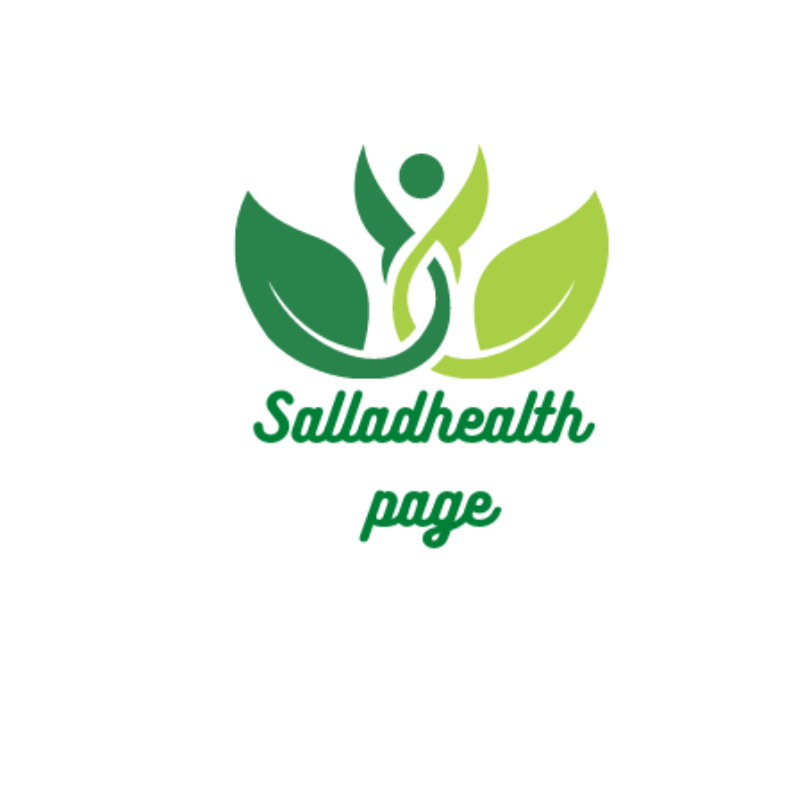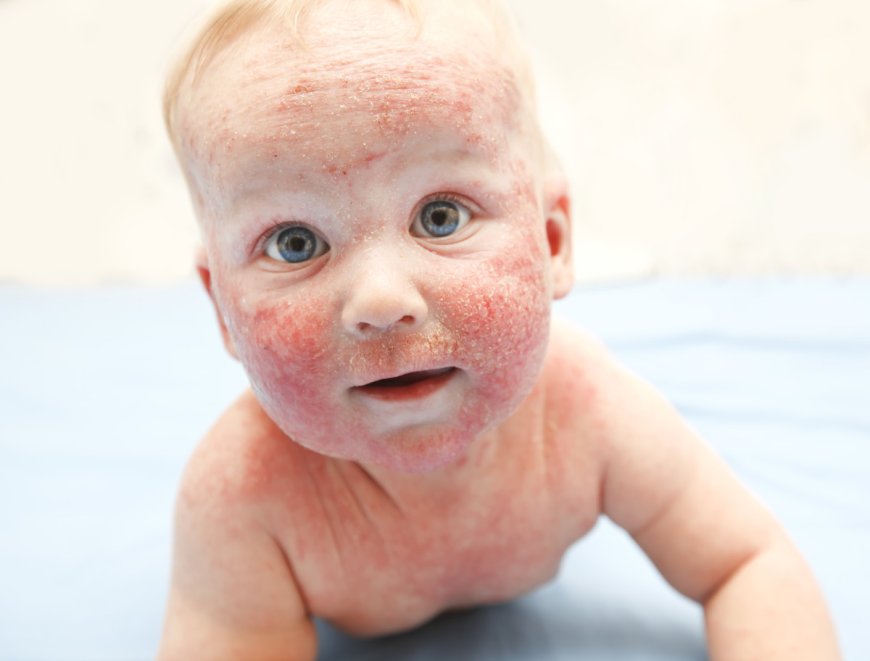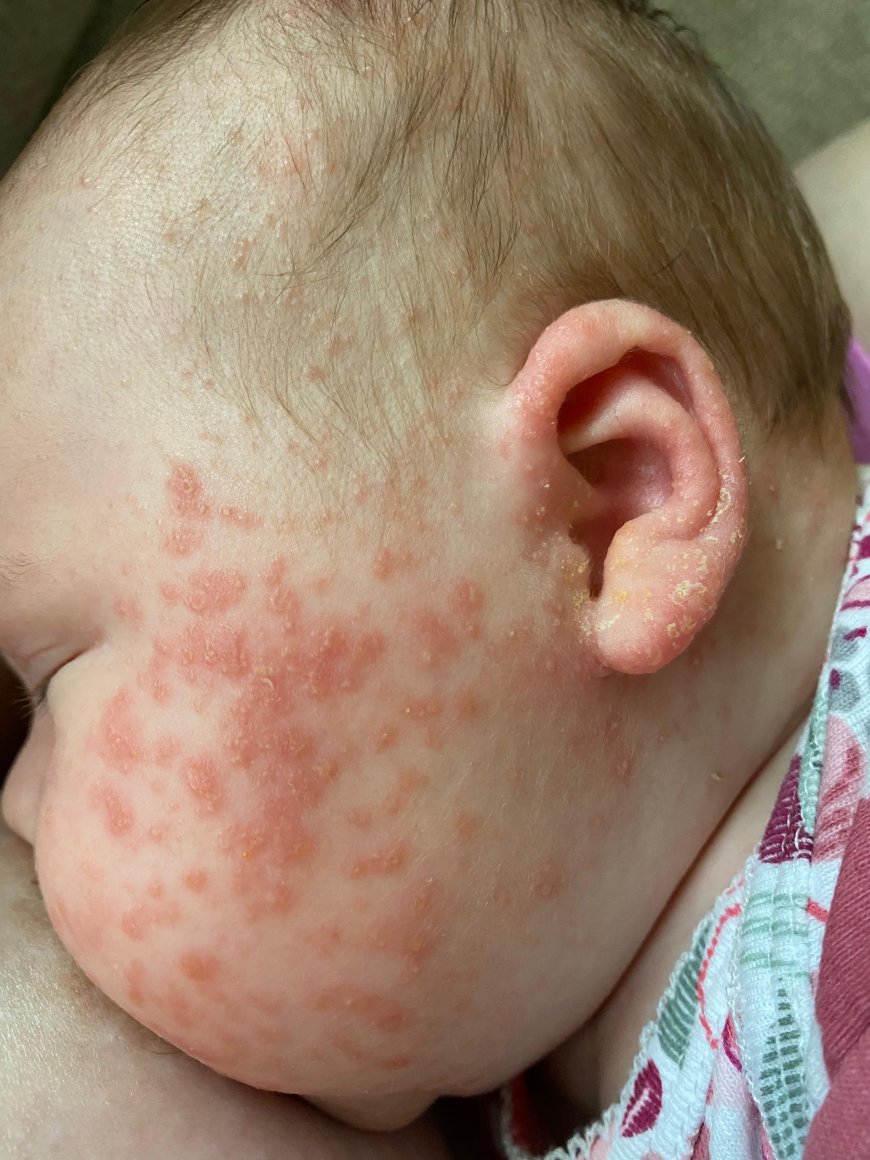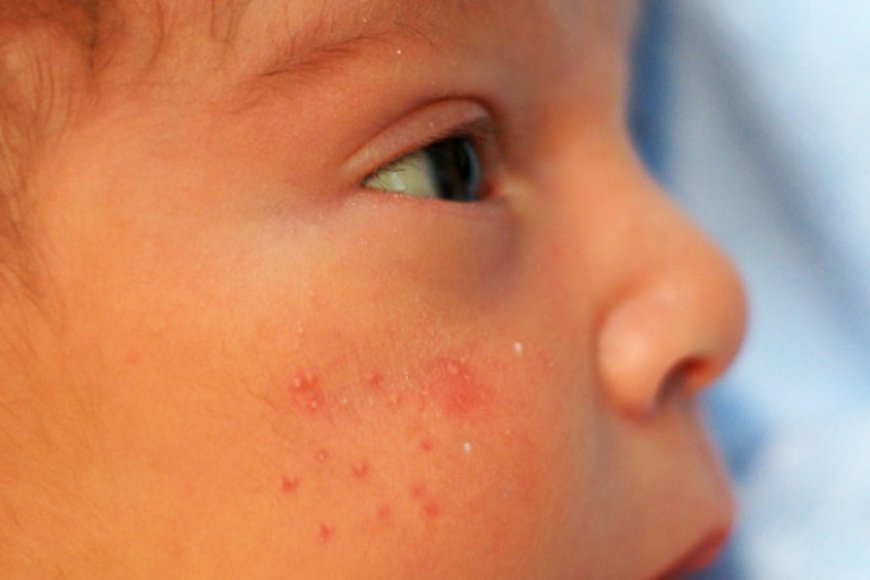"Baby Acne: What Every New Parent Needs To Know"
Learn everything you need to know about baby acne, from causes and treatment to prevention tips. Our comprehensive guide is perfect for new parents.
As a new parent you may be alarmed if you notice tiny red bumps or whiteheads on your baby's face. Don't worry; this is a common condition known as baby acne. Although baby acne is harmless, it can be distressing to see your little one's delicate skin affected. In this article, we'll explore the causes, symptoms, and treatment options for baby acne.
What is Baby Acne?
Baby acne, also known as neonatal acne, is a common skin condition that affects newborn babies. It typically appears on the face, especially on the cheeks, chin, and forehead. Baby acne can also occur on the neck, chest, and back. This condition is not to be confused with milia, which are small, white bumps that appear on a baby's face due to blocked pores.
Causes of Baby Acne
The exact cause of baby acne is not clear, but it is believed to be related to hormonal changes. During pregnancy, a mother's hormones can cross the placenta and affect the baby's developing skin. These hormones stimulate the sebaceous glands, causing them to produce more oil. Excess oil can clog pores, leading to the formation of acne.
Symptoms of Baby Acne
Baby acne appears as small red or white bumps on the baby's face. The bumps may be surrounded by red, inflamed skin. In some cases, the bumps may develop into pustules or papules, which are small, raised bumps filled with pus. Baby acne usually appears within the first few weeks after birth and can last for several months.
Treatment for Baby Acne
Fortunately, baby acne is a self-limiting condition that typically clears up on its own within a few months. However, there are some things you can do to help speed up the healing process:
- Keep your baby's skin clean: Gently cleanse your baby's face with warm water and a mild baby soap or cleanser. Avoid using harsh or scented products that can irritate the skin.
- Avoid overwashing: overwashing can strip the skin of its natural oils and make the acne worse. Wash your baby's face once or twice a day, and pat dry with a soft towel.
- Don't apply any creams or lotions: Avoid using any creams, lotions, or oils on your baby's face, as they can clog pores and worsen the acne.
- Avoid squeezing or picking: Don't squeeze or pick at your baby's acne, as this can lead to scarring or infection.
- Be patient: Baby acne usually clears up on its own within a few months. In the meantime, be patient and wait for it to resolve.
When to See a Doctor
In most cases, baby acne is a harmless condition that clears up on its own. However, you should consult your pediatrician if you notice any of the following symptoms:
- Pus-filled lesions: If your baby's acne appears to be filled with pus, it may be infected and require medical attention.
- Redness or swelling: If your baby's acne is accompanied by redness or swelling, it may be a sign of an allergic reaction or infection.
- Worsening symptoms: If your baby's acne does not improve after several weeks, or if it appears to be getting worse, you should consult your pediatrician.
Other symptoms: If your baby is experiencing other symptoms such as fever, lethargy, or difficulty breathing, you should seek medical attention immediately.
Preventing Baby Acne
Although it's not always possible to prevent baby acne, there are some things you can do to reduce your baby's risk:
- Avoid using oily or greasy products: Don't apply oily or greasy products to your baby's skin, as they can clog pores and contribute to acne.
- Keep your baby's face clean: Gently clean your baby's face with warm water and a mild baby soap or cleanser to remove any dirt or oil that may contribute to acne.
- Use soft, gentle fabrics: Use soft, breathable fabrics such as cotton for your baby's clothing and bedding. Avoid fabrics that are rough or scratchy, as they can irritate the skin.
- Avoid exposing your baby to cigarette smoke: Exposure to cigarette smoke can irritate your baby's skin and contribute to acne.
- Breastfeed your baby: Breastfeeding can help to reduce your baby's risk of developing acne, as breast milk contains natural antibodies that can help to protect your baby's skin.
Conclusion
Baby acne is a common skin condition that affects many newborns. Although it can be distressing to see your baby's delicate skin affected, baby acne is harmless and usually clears up on its own within a few months. By keeping your baby's skin clean and avoiding harsh products, you can help speed up the healing process. If you have any concerns about your baby's acne, consult your pediatrician for further advice.
What's Your Reaction?












































